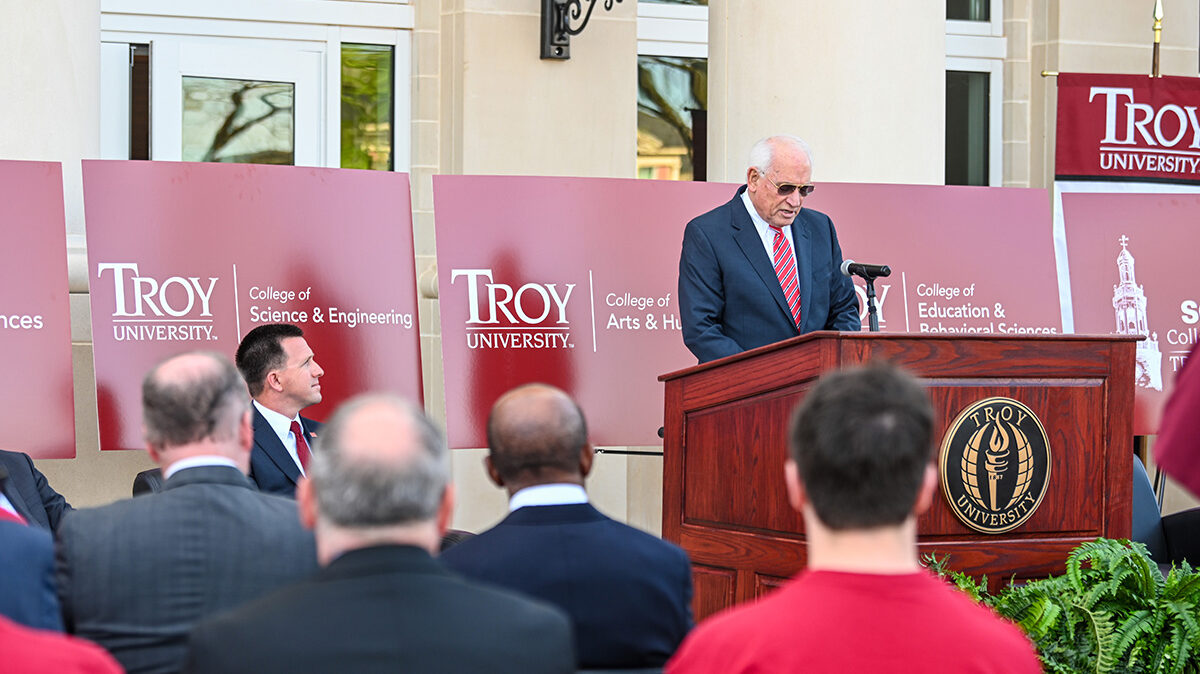|
Getting your Trinity Audio player ready...
|
Troy University is advancing its commitment to research and innovation with the launch of the new College of Science and Engineering and a new electrical and electronics engineering degree program.
The College of Science and Engineering is replacing the former College of Arts and Sciences. It will focus exclusively on STEM-related fields, including biological and environmental sciences, chemistry and physics, computer science, geospatial informatics, mathematics and statistics and pre-professional programs.
Chancellor Dr. Jack Hawkins, Jr. said the transitions reflect the University’s strengthened focus on science and research.
“With the establishment of the College of Science and Engineering, Troy University is not only embracing the future of education, but shaping it,” Dr. Hawkins said. “This new focus on STEM disciplines and research underscores our commitment to fostering innovation, discovery and progress in fields that are driving the world forward. Employment in STEM related jobs is growing at twice the rate of non-stem areas; we must provide relevant academic programs for students as we respond to the employment needs of the community.”
The creation of the College of Science and Engineering is part of a broader reorganization of the University’s college structure. Programs that were previously part of the College of Arts and Sciences, including history, philosophy, anthropology, sociology, criminology, political science and the Army and Air Force ROTC programs, are being reassigned to other colleges.
The College of Communication and Fine Arts will be renamed the College of Arts and Humanities and will absorb the Department of History and Philosophy. The College of Education will become the College of Education and Behavioral Sciences and will take on the Department of Anthropology, Sociology and Criminology, the Department of Political Science and both the Army and Air Force ROTC programs.
“This reorganization is about strategically aligning our programs to best serve the needs of our students and the evolving demands of the world,” said Dr. Kerry Palmer, senior vice chancellor of Academic Affairs. “By redistributing these departments, we are strengthening our commitment to academic excellence and ensuring that each discipline has the support and focus it deserves for continued success.”
On March 14, the Alabama Commission on Higher Education approved the addition of the Bachelor of Science in Electrical and Electronics Engineering. This new program will provide a cutting-edge curriculum that integrates theory, hands-on learning and industry-driven innovation.
Dr. Govind Menon, dean of the College of Science and Engineering, said the program prepares students to excel in the workforce and supports TROY’s mission to achieve R-2 research institution status. R-2 designates institutions with significant research activity.
“This program not only equips students with the skills needed to thrive in today’s competitive workforce, but also aligns with TROY’s broader academic and research objectives,” Menon said. “By fostering innovation and supporting advanced research, we are preparing students to lead in emerging technological fields, driving economic growth and contributing to the development of cutting-edge solutions that address global challenges.”
The degree is designed to meet specialized accreditation requirements in the field of engineering and will provide students with the opportunity to pursue internships and gain practical experience through two capstone courses. The University plans to develop five new courses for the program, which will replace existing Electronics Engineering Technology courses.
The focus on experiential learning will help bridge the gap between theoretical knowledge and practical application, making graduates more workforce ready, said Dr. Raj Vinnakota, program coordinator.
“As industries increasingly rely on advancements in semiconductors, telecommunications, automation and renewable energy, this program will equip students with the expertise needed to meet workforce demands,” he said. “It fosters university-industry collaborations that drive innovation and economic growth.”
The program is welcoming students for Fall 2025. More information about the BSEEE degree is available online.






















































